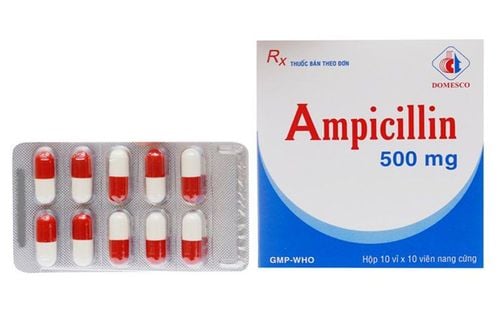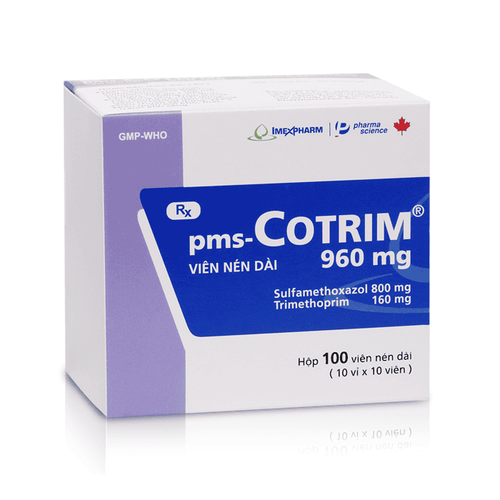This is an automatically translated article.
Erythromycin is a common antibiotic used to treat respiratory, skin, or eye infections. The arbitrary use of antibiotics can cause certain harms to the body. Therefore, it is necessary to consult a specialist before using Erythromycin.1. Erythromycin drug effects
Erythromycin antibiotic belongs to the Macrolide group, has bacteriostatic and bactericidal effects at high concentrations, so it has a broad spectrum of action. The drug is usually indicated in the following cases:
Infections of the respiratory tract, skin, soft tissues, urinary - genitourinary and digestive systems; Along with the antibiotic Neomycin to prevent bacterial infections during bowel surgery; Replacement of beta-lactam antibiotics in penicillin-allergic patients; Substitute Penicillin for the long-term prophylaxis of rheumatism.
2. Dosage of the drug Erythromycin
Erythromycin should be taken on an empty stomach, if digestive irritation occurs, take it with food. Reference dosage of the drug is as follows:
Adults: 500-1000 mg/time, 2-3 times a day; Children: 30-50 mg/kg/day, 2-3 times a day The above is a general reference dose, the specific dose depends on the condition and progression of the disease.
In case of overdose Erythromycin will cause vomiting, abdominal pain, diarrhea or temporary hearing loss. At this time, it is necessary to treat with Epinephrine, Corticosteroids and antihistamines to manage allergic reactions, gastric lavage to eliminate unabsorbed drugs from the body.
3. Erythromycin side effects
In some patients when using Erythromycin, serious side effects may occur such as:
Pain, rash, burning; Leaking or showing signs of skin infection; Skin condition worsens; Diarrhea or bloody stools. Less serious but important side effects to watch out for include:
Mild skin irritation or pain; Dry or oily skin; Itchy; Exfoliate; Itchy eyes. To avoid side effects, patients should pay attention to their own health status before using the drug. Medical conditions that can affect Erythromycin include:
Slow heart rate or having cardiovascular disease; Hypokalemia or hypomagnesemia; Congestive heart failure ; Increased liver enzymes or liver disease; Muscle weakness.
4. Drug interactions with Erythromycin
Erythromycin is contraindicated in combination with Astemizole or Terfenadine because of the risk of cardiac toxicity such as torsades de pointes, ventricular tachycardia and death. In addition, caution should also be exercised when using Erythromycin with the following drugs:Alfentanil: Erythromycin may reduce plasma clearance and prolong the drug's duration of action; Carbamazepine and valproic acid can be inhibited by Erythromycin, causing increased drug concentration and toxicity; Digoxin: Erythromycin increases the concentration of digoxin in the blood by acting on the intestinal microflora so that digoxin is not inactive; Midazolam or Triazolam: Erythromycin reduces the clearance and increases the effect of the drug. In short, the effect of Erythromycin is to treat respiratory, skin or eye infections. Patients need to take the drug exactly as prescribed by the doctor to increase the effectiveness of treatment and ensure safety for health.
Please dial HOTLINE for more information or register for an appointment HERE. Download MyVinmec app to make appointments faster and to manage your bookings easily.













